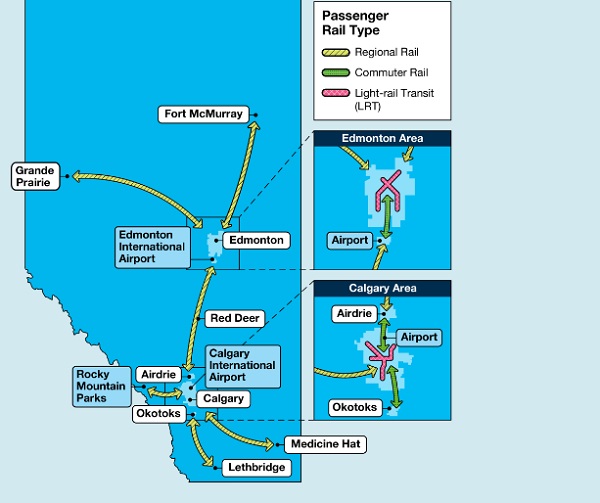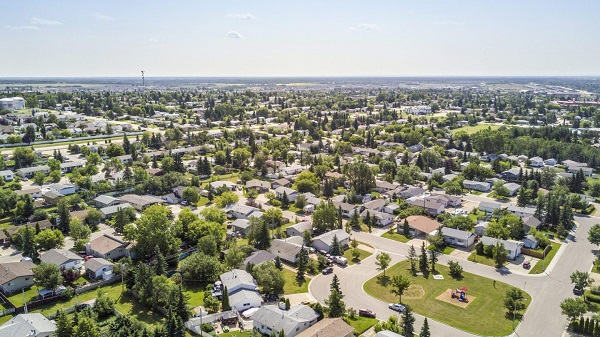Alberta
Watch: Ten new cases of COVID-19 in Alberta. Two people in intensive care

From the Province of Alberta
COVID-19 in Alberta March 14
Ten additional cases of COVID-19 have been confirmed, bringing the total number of cases in the province to 39.
Six of the new cases are in Calgary Zone and four are in Edmonton Zone.
Two of the new cases, one in Edmonton Zone and the other in Calgary Zone, have been admitted into intensive care. All other new cases are self-isolating at home and expected to make a full recovery.
Eight of the new cases have been confirmed to be related to international travel or to a previously confirmed case. Investigations are ongoing on the remaining two cases.
“Given the rise of the COVID-19 pandemic, we know parents, students, and school officials are very concerned. I want to assure all Albertans that their children’s safety is top of mind in all our decisions, and we are making the best public health decisions we can with the information we have, in this rapidly developing situation. We are prepared to make changes if and when the situation warrants it.”
School update
A conference call was held today with the chief medical officer of health and more than 500 representatives from Alberta’s school boards, school authorities, and education stakeholders.
On March 13, Alberta recommended that schools remain open at this time. The World Health Organization does not recommend school closures as the only way to prevent the spread of COVID-19 in children.
Alberta continues to monitor the province’s situation carefully. If the situation warrants it, the Alberta government could direct the closure of an individual school, a group of schools, an entire school division, or all schools in the province. This would be a decision of Cabinet’s emergency management committee.
In meantime, all schools should take steps to protect the health of students and staff:
- eliminate large gatherings of students
- ensure no more than 250 people are in the same room at any given time
- consider cancelling extracurricular activities that involve physical contact
A new guide has been developed to help schools and daycares reduce the risk of spreading COVID-19. The guide is available at alberta.ca/COVID19.
We will continue to update this document based on feedback received from education stakeholders.
Flight Information
There are more and more flights with passengers confirmed to have the virus. Albertans should self-monitor their air travel, so that public health officials can use their time to trace other contacts. Those who have recently returned to Alberta via a flight, are encouraged to visit alberta.ca/COVID19 for flight information and to self-isolate if found to be at risk of exposure.
Government will be posting flight information that includes the flight number, date and any seats on the flight that might be at risk of exposure to COVID-19. Passengers in affected seats are encouraged to self-isolate for 14 days after arrival in Canada and monitor for symptoms. Other passengers are not required to self-isolate but should monitor for symptoms as a precaution.
Certain professions may be exempt from travel restrictions. Any exemptions are being determined on a case-by-case basis after consultation with industry stakeholders. At this time, flight attendants and pilots are exempted from travel recommendations, provided they practice good hygiene and take precautions to limit their risk.
Updated resources
- Flight information is posted under the “Info for Albertans” section.
- The new guide for schools and child care programs has been posted under “Info for schools and child care centres.”
- A new information sheet on mass gatherings, including risk mitigation strategies, has been posted under “Public health restrictions on mass gatherings.”
- Information posters are available under “Resources” for organizations and businesses to distribute.
- Alberta Health Services has launched an online self-assessment tool to help Albertans determine whether they should get tested for COVID-19. Over 100,000 Albertans completed self-assessments within the first 24 hours.
Quick facts
- Alberta’s Provincial Operations Centre in Edmonton elevated from a level 2 to a level 3 – out of a possible 4. Level 3 indicates an increased amount of cross-government coordination through the Alberta Emergency Management Agency.
- The most important measures that Albertans can take to prevent respiratory illnesses, including COVID-19, is to practise good hygiene.
- This includes cleaning your hands regularly for at least 20 seconds, avoiding touching your face, coughing or sneezing into your elbow or sleeve, disposing of tissues appropriately, and staying home and away from others if you are sick.
- Anyone who has health concerns or is experiencing symptoms of COVID-19 should contact Health Link 811 to see if follow up testing is required.
- For recommendations on protecting yourself and your community, visit alberta.ca/COVID19.
Alberta
Passenger rail experts from across the world to inform Alberta’s Passenger Rail Master Plan

Alberta’s future runs on rails
Alberta’s government is bringing together passenger rail experts from across the world to share best practices and inform the province’s Passenger Rail Master Plan.
As Alberta experiences record growth and evolving transportation needs, passenger rail infrastructure and services will be vital for enhancing accessibility and connecting communities. To support this, Alberta’s government is developing a Passenger Rail Master Plan to build the optimal passenger rail system for the province.
As part of the development of the plan, Alberta’s government is hosting a one-day forum to provide an opportunity for Alberta communities, industry and experts to collaborate and share information on passenger rail opportunities and challenges. The forum includes experts from Ontario, Quebec, California, Italy, Spain and Japan who are involved in passenger rail procurement, governance and operations. The sessions will allow for the sharing of best practices and lessons learned on passenger rail planning and development.
“Alberta was built by innovators and visionaries who saw potential in our province and its people. They believed that if you could dream it, you could achieve it. We believe there is opportunity and demand for passenger rail services in Alberta. Today’s forum marks an important step forward in the development of our Passenger Rail Master Plan and in achieving our vision for passenger rail.”
In line with the province’s commitment to engaging Albertans throughout the development of the Passenger Rail Master Plan, a survey has been launched to seek public input on passenger rail. Albertans are invited to complete the online survey by Dec. 20 to help shape the future of passenger rail in Alberta. There will be additional opportunities for Albertans to have their say on passenger rail in the future, including regional open houses which will be held in early 2025.
“Feedback from Albertans, Alberta municipalities, Indigenous communities and industry will be critically important to developing passenger rail services in Alberta. I encourage all Albertans to complete the online survey to help inform a shared vision for passenger rail to enhance accessibility, efficiency, and connectivity across the province.”
In April 2024, Alberta’s government shared its vision for passenger rail and announced the development of the Passenger Rail Master Plan for Alberta. The province’s vision is for an Alberta passenger rail system that includes public, private or hybrid passenger rail, including:
- a commuter rail system for the Calgary area that connects surrounding communities and the Calgary International Airport to downtown
- a commuter rail system for the Edmonton area that connects surrounding communities and the Edmonton International Airport to downtown
- passenger rail that runs between Calgary and Edmonton and the Rocky Mountain parks
- a regional rail line between Calgary and Edmonton, with a local transit hub in Red Deer
- municipal-led LRT systems in Calgary and Edmonton that integrate with the provincial passenger rail system
- rail hubs serving the major cities that would provide linkages between a commuter rail system, regional rail routes and municipal-led mass transit systems
The vision includes a province-led “Metrolinx-like” Crown corporation with a mandate to develop the infrastructure and oversee daily operations, fare collection/booking systems, system maintenance, and planning for future system expansion.
Quick facts
- The Passenger Rail Survey will be open until Dec. 20.
- Alberta’s Passenger Rail Master Plan is expected to be completed by summer 2025 and will include:
- a comprehensive feasibility assessment
- financial and delivery model options
- governance and operations recommendations
- a 15-year delivery plan
- public engagement
Related information
Alberta
REPORT: Alberta municipalities hit with $37 million carbon tax tab in 2023

Grande Prairie. Getty Images photo
From the Canadian Energy Centre
Federal cash grab driving costs for local governments, driving up property taxes
New data shows the painful economic impact of the federal carbon tax on municipalities.
Municipalities in Alberta paid out more than $37 million in federal carbon taxes in 2023, based on a recent survey commissioned by Alberta Municipal Affairs, with data provided to the Canadian Energy Centre.
About $760,000 of that came from the City of Grande Prairie. In a statement, Mayor Jackie Clayton said “if the carbon tax were removed, City property taxes could be reduced by 0.6 per cent, providing direct financial relief to residents and businesses in Grande Prairie.”
Conducted in October, the survey asked municipal districts, towns and cities in Alberta to disclose the amount of carbon tax paid out for the heating and electrifying of municipal assets and fuel for fleet vehicles.
With these funds, Alberta municipalities could have hired 7,789 high school students at $15 per hour last year with the amount paid to Ottawa.
The cost on municipalities includes:
Lloydminster: $422,248
Calgary: $1,230,300 (estimate)
Medicine Hat: $876,237
Lethbridge: $1,398,000 (estimate)
Grande Prairie: $757,562
Crowsnest Pass: $71,100
Red Deer: $1,495,945
Bonnyville: $19,484
Hinton: $66,829
Several municipalities also noted substantial indirect costs from the carbon tax, including higher rates from vendors that serve the municipality – like gravel truck drivers and road repair providers – passing increased fuel prices onto local governments.
The rising price for materials and goods like traffic lights, steel, lumber and cement, due to higher transportation costs are also hitting the bottom line for local governments.
The City of Grande Prairie paid out $89 million in goods and services in 2023, and the indirect costs of the carbon tax “have had an inflationary impact on those expenses” in addition to the direct costs of the tax.
In her press conference announcing Alberta’s challenge to the federal carbon tax on Oct. 29, 2024, Premier Danielle Smith addressed the pressures the carbon tax places on municipal bottom lines.
“In 2023 alone, the City of Calgary could have hired an additional 112 police officers or firefighters for the amount they sent to Ottawa for the carbon tax,” she said.
In a statement issued on Oct. 7, 2024, Ontario Conservative MP Ryan Williams, shadow minister for international trade, said this issue is nationwide.
“In Belleville, Ontario, the impact of the carbon tax is particularly notable. The city faces an extra $410,000 annually in costs – a burden that directly translates to an increase of 0.37 per cent on residents’ property tax bills.”
There is no rebate yet provided on retail carbon pricing for towns, cities and counties.
In October, the council in Belleville passed a motion asking the federal government to return in full all carbon taxes paid by municipalities in Canada.
The unaltered reproduction of this content is free of charge with attribution to the Canadian Energy Centre.
-

 Brownstone Institute1 day ago
Brownstone Institute1 day agoThe Most Devastating Report So Far
-

 Economy2 days ago
Economy2 days agoCOP 29 leaders demand over a $1 trillion a year in climate reparations from ‘wealthy’ nations. They don’t deserve a nickel.
-

 Censorship Industrial Complex1 day ago
Censorship Industrial Complex1 day agoAnother Mass Grave?
-

 ESG17 hours ago
ESG17 hours agoCan’t afford Rent? Groceries for your kids? Trudeau says suck it up and pay the tax!
-

 Alberta1 day ago
Alberta1 day agoMAiD In Alberta: Province surveying Albertans about assisted suicide policies
-

 Energy2 days ago
Energy2 days agoOttawa’s proposed emission cap lacks any solid scientific or economic rationale
-

 Alberta2 days ago
Alberta2 days agoOn gender, Alberta is following the science
-

 International18 hours ago
International18 hours agoElon Musk praises families on X: ‘We should teach fear of childlessness,’ not pregnancy

